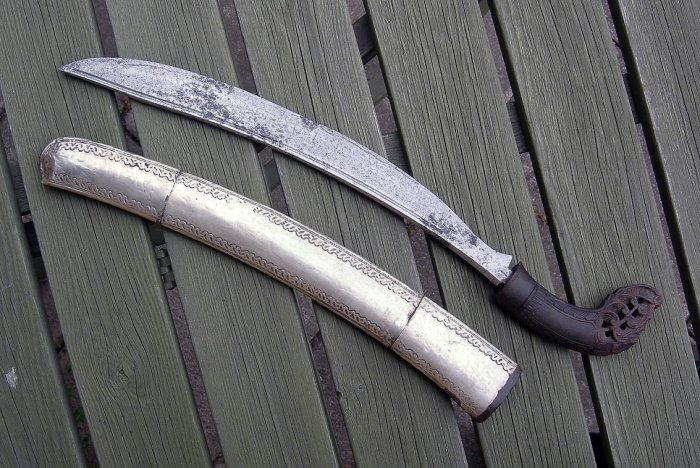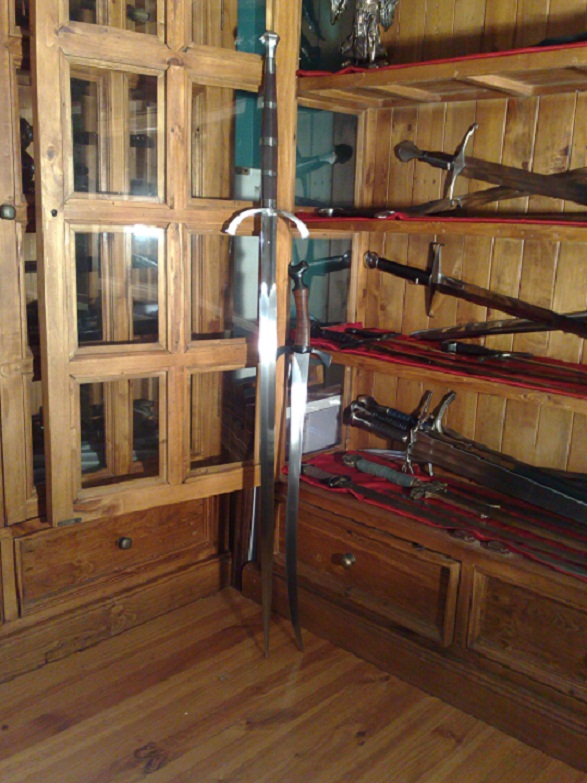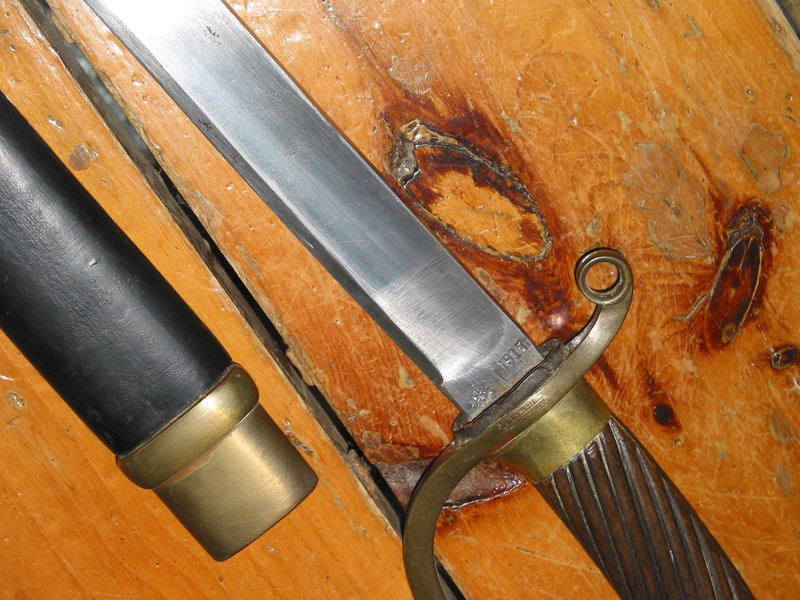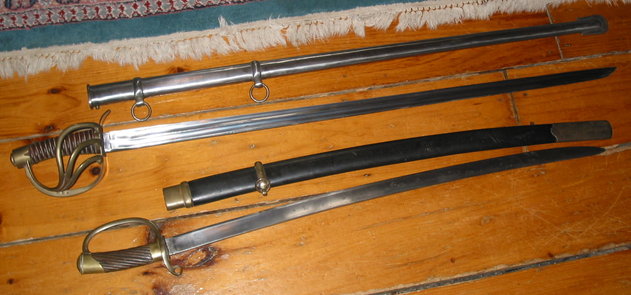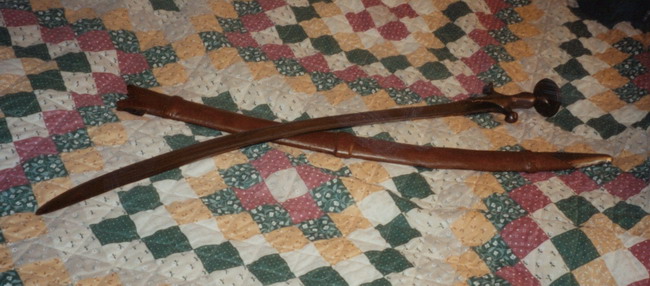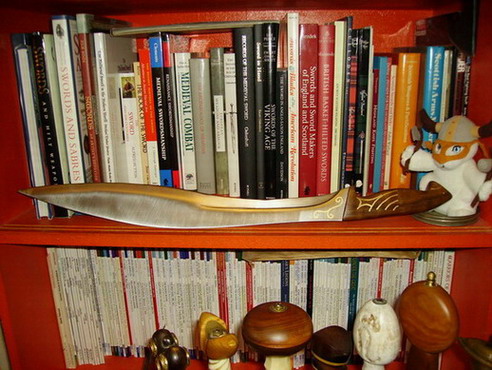Posts: 803 Location: In a van down by the river
Sat 09 Jul, 2011 12:40 pm
Here are a couple:
1. WWII German dress sword by F.W. Holler of Solingen.
2. Do Kopis/Machairas/Falcatas count? They're curved! Anyway, here's two, a Del Tin falcata (top) with an Iron Age Armoury custom crow-head falcata.
3. Basket-hilted sabre or
Claidheamh Crom by Donnie "MadPiper" Shearer, with a customized India-made 1796-pattern blade
4. Paul Holwell Horsehead Falcata.
 Attachment: 66.64 KB
Attachment: 66.64 KB
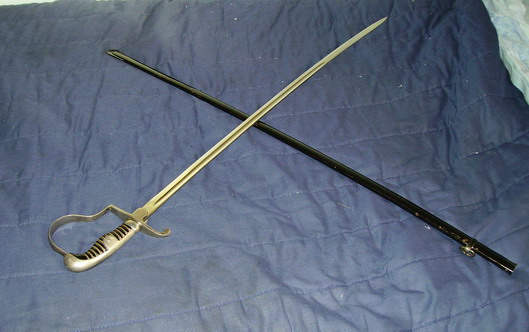
 Attachment: 95.3 KB
Attachment: 95.3 KB
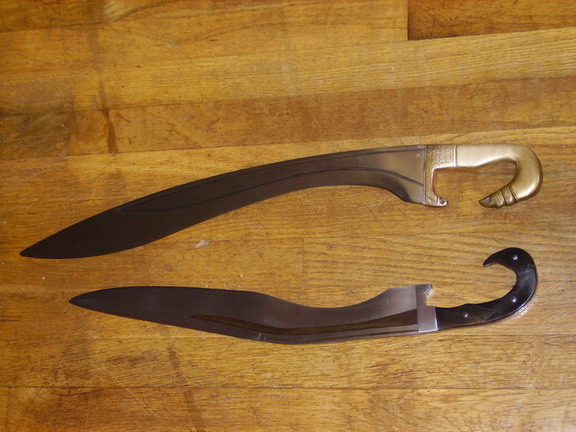
 Attachment: 72.41 KB
Attachment: 72.41 KB
[ Download ]
 Attachment: 97.97 KB
Attachment: 97.97 KB
[ Download ]
